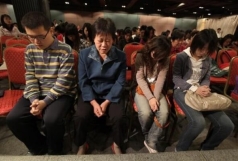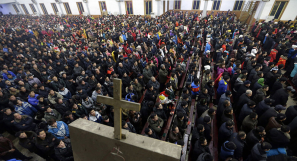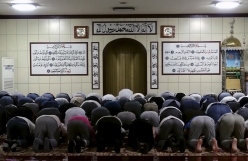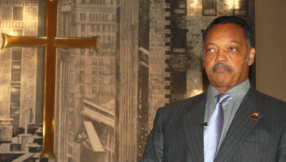Islam and Catholicism are the two religions that have seen rapid growth among the Chinese who are under 30 years old, according to a new study.
Of the said age bracket, 22.4 percent are Muslims while Catholics follow very closely at 22 percent, according to the China Religion Survey 2015 as released by the National Survey Research Centre at Renmin University of China.
"Islam tends to have a younger demographic," said Wei Dedong, a professor of Buddhist studies at the School of Philosophy at Renmin, who was part of the research.
"Most believers of Islam belong to ethnic minority groups and it is common for a woman to give birth to several children. The children would also become Muslims while it is very rare to have an adult converting to Islam."
Christianity is also fast rising, with one study in 2014 showing that more people in China identified themselves as Christians than as members of the Chinese Communist Party, when taking into consideration people who shifted to Catholicism and the new members of Protestant churches.
The China Religion Survey 2015 held interviews from more than 4,000 religious sites between 2013 and 2015. The research found that even though Buddhism and Taoism are more popular with the older generations, Protestantism has posted the greatest number in terms of places of worship.
Also, 60 percent of people who work in places of worship see state regulations as "fair."
This is contrary to the latest report from the Commission on International Religious Freedom (USCIRF), which said there is an "alarming increase in systematic, egregious, and ongoing abuses" on religious freedom in China last year.
In the Xinjiang province, authorities has disallowed Communist Party members to avoid public fasting during the Muslim holy month of Ramadan and forced shops to make alcohol and cigarettes available despite being banned by the Quran.
An ordinance last year also prohibited the practice of religion for those working for the government.
The Communist government also banned foreign missionary work and declined to acknowledge appointment by foreign religious bodies like the Vatican.
The government has also deemed illegal any unregistered religious groups.
Authorities also forcibly tore down churches or removed crosses from churches last year.
In 2013, Chinese Catholics expressed their anticipation for a visit from Pope Francis, who was then newly elected to his post as head of the Roman Catholic Church, according to the Official Vatican Network.


















